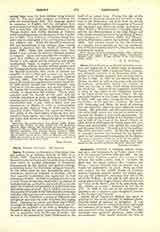

Caron, RAYMOND (or REDMOND), Franciscan friar and author, b. at Athlone, Ireland, in 1605; d. at Dublin, 1666. Entering the Franciscan convent in his native town he there made his preliminary studies, after which he studied philosophy at Drogheda. Subsequently he left Ireland and studied theology at Salzburg and at the Franciscan college at Louvain. At the latter place he was, immediately after his ordination, appointed professor of theology, and in that capacity maintained the reputation he had earned as a student. In 1635 he published at Antwerp a work “Roma triumphans Septicollis”, in defense of Catholic doctrine, and had he continued at Louvain the quiet life of author and professor it would have been well for his peace of mind. But in 1648 he was sent by the superior of his order in the Netherlands to Ireland as visitator with ample powers to correct and reform. He resided at the Franciscan convent at Kilkenny, and plunged at once into the strife of faction then raging there. Opposing the nuncio and Owen Roe O’Neill, he sought to bring all to the side of Ormonde and imprisoned the members of his order at Kilkenny who refused to adopt his views, a proceeding which made him so unpopular that his life was in danger, and he had to be protected by Lord Castlehaven at the head of an armed force. During the rule of the Puritans he remained abroad, but returned to England at the Restoration and lived there for several years. He was throughout the supporter of Ormond and his policy and wrote two works, in defense of Peter Walsh‘s “Remonstrance”: “Loyalty asserted, and the late Remonstrance of the Irish Clergy and Laity confirmed and proved by the authority of Scripture, Fathers, etc.” (London, 1662); and “Remonstrantia Hibernorum contra Lovanienses” (London, 1665). This conduct earned for him the character of a loyalist; but it brought on him the condemnation of his own superiors and for a time he was under ecclesiastical censure.
E. A. D’ALTON

